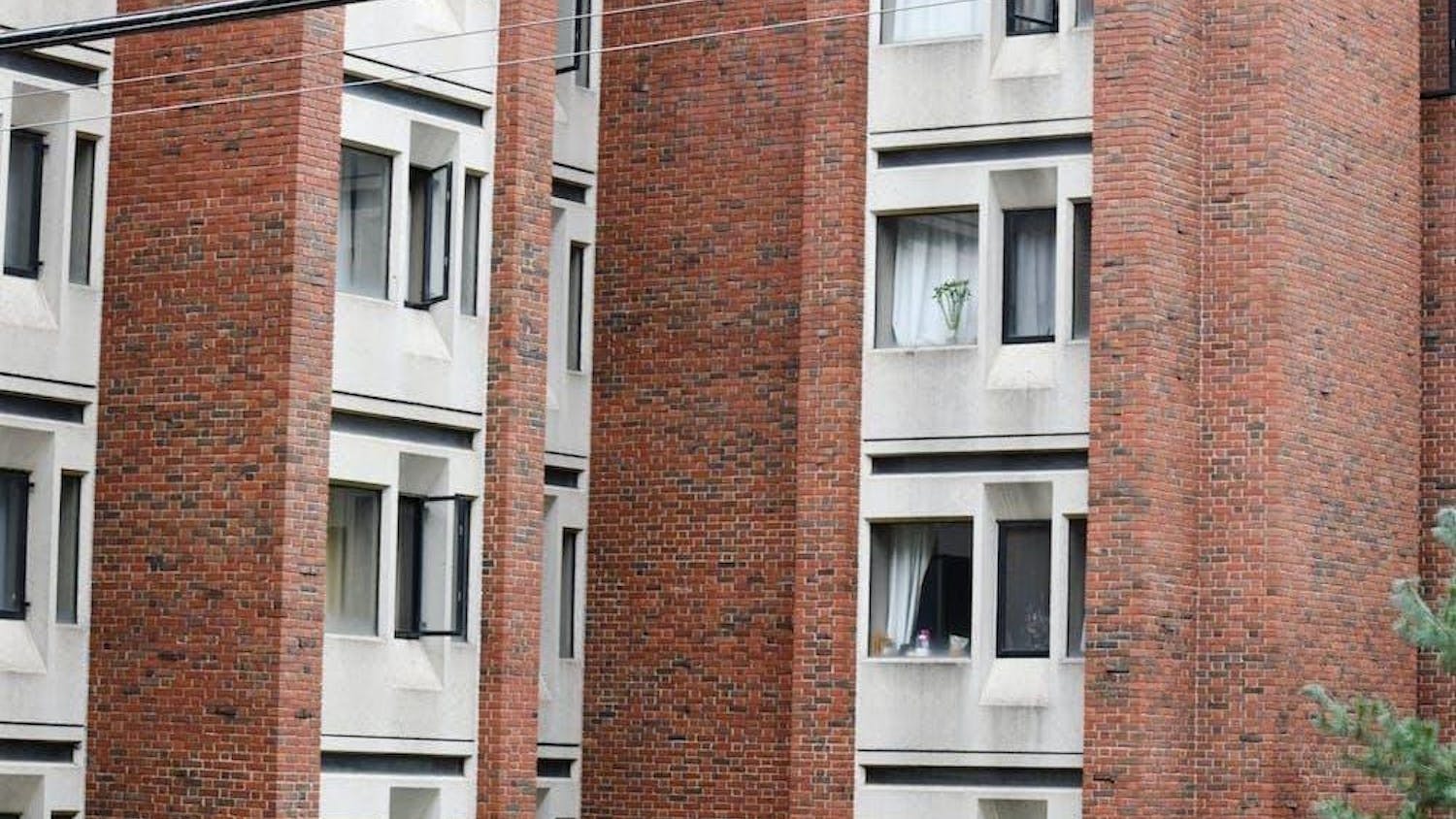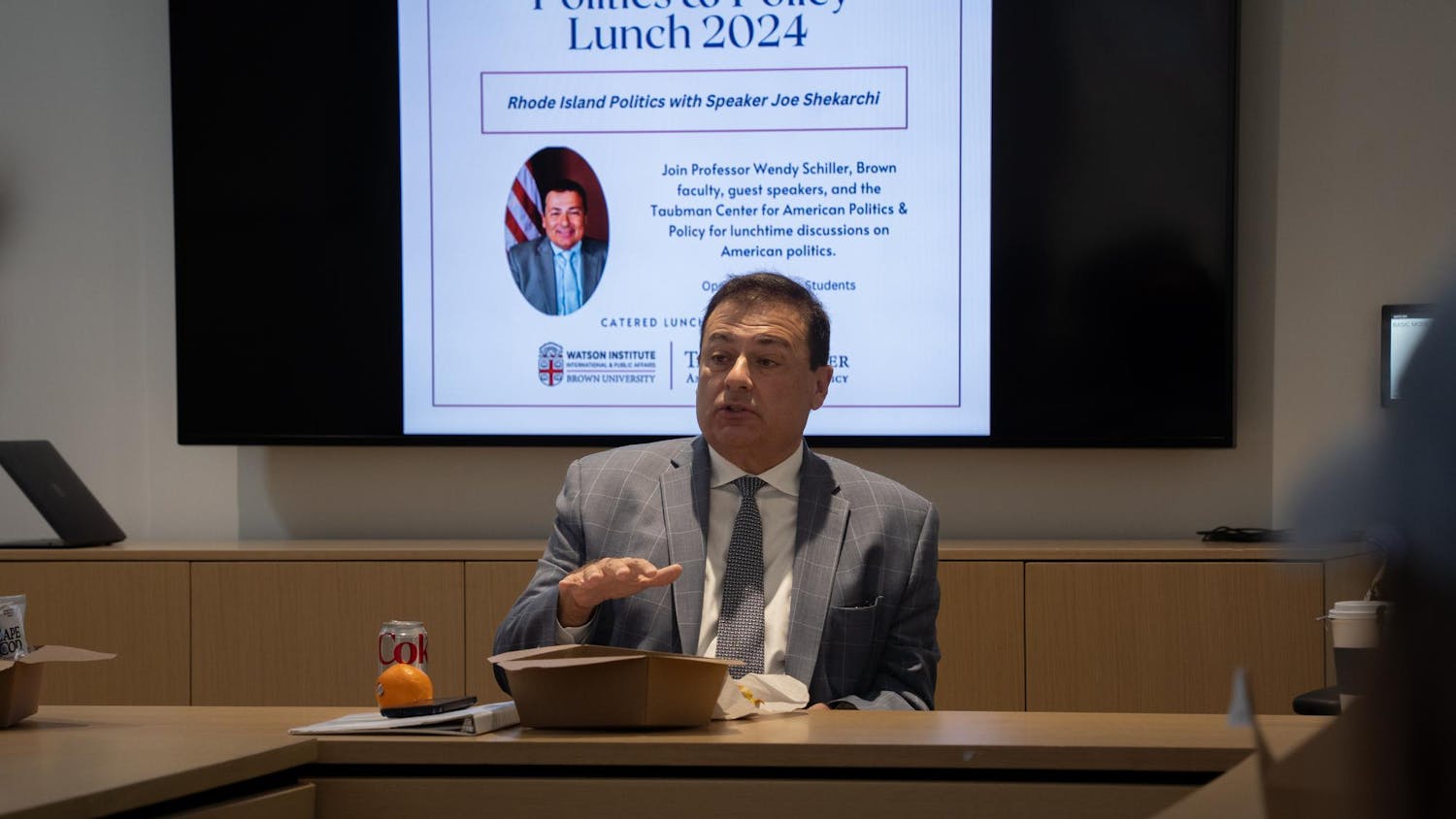A documentary screened as part of the first annual Rhode Island Black Film Festival yesterday sparked conversation about the reconstruction of a house in which Rosa Parks once lived that is currently located in Providence. The film, entitled “The White House” and directed by Fabia Mendoza, focuses on a personal artistic endeavor led by Fabia Mendoza’s husband Ryan Mendoza.
The house featured in the film belonged to Parks’ brother and first caught the attention of Ryan Mendoza in 2016 in Detroit. After he deconstructed the house and rebuilt it in Berlin to save it from demolition, the University offered to bring the house to Providence in February 2018 to feature the life and times of Rosa Parks at the WaterFire Arts Center. But upon the house’s arrival in March, the University canceled its support by citing the house as an object of an outside dispute, The Herald previously reported.
“Upon cancellation of the exhibition, we had a contractual obligation to the artist and to WaterFire to disassemble and remove the house from the current space, return it to the artist’s care or arrange for shipping at Brown’s expense to any location in the U.S. or Germany as determined by the artist,” wrote Director of News and Editorial Development Brian Clark in an email to The Herald. “We agreed to provide funding at a level aligned with that commitment and at this point, we have no remaining obligations related to the house.”
Without financial support, the house cannot be displayed to the public in a full exhibition, said Barnaby Evans, director of the WaterFire Arts Center.
“My question now is I really want to see this house,” said an attendee, Christine Rosa. “I want to see it now. I live here in Providence, I pay my taxes and I think it’s my right to see it. Why can’t I see the house now, please?”
In response, Evans offered to show Rosa the exhibit, but it remains unopen to the public, Evans said.
Since the University has rescinded its financial support for displaying the house, the WaterFire Arts Center is now constrained by “a big gap in funding” if they decide to go forward with the exhibition, Evans said.
“There’s no lights on it, there’s no installation,” he added. “We don’t have personnel to open the museum.”
The post-film discussion also featured stories from audience members about a weekend when Rosa Parks came to Providence in 1984. This time alloted for questions evolved into a conversation about race, inequality and need in Providence.
“It’s the first black (film) festival in Rhode Island, so we’re really a part of history,” said audience member Noe Staley. “It’s important for black filmmakers to share their talents and voice their opinions.”
Festival founder Ann Clanton said she intended for discussion about social and racial issues to take place at her screenings. She also is proud to feature underrepresented artists — a decision appreciated by the audience members present at the event.
Though Fabia Mendoza is not black, she said she is grateful that her film was screened at RIBFF.“I’m not black, obviously, and I was just at the Beverly Hills Film Festival, but this means much more to me,” she said. “Because my movie was screened in several places, and I also see segregation in the audience a lot, and I would like to have a reaction from people who feel strongly about this thing.”
Corrections: An earlier version of this article stated that the documentary directed by Fabia Mendoza is entitled “A White House.” In fact, the documentary is entitled “The White House." An earlier version of this article also stated that the film was a personal artistic endeavor led by Fabia Mendoza’s husband Ryan Mendoza. In fact, the film focused on a personal artistic endeavor led by Fabia Mendoza’s husband Ryan Mendoza. The Herald regrets the errors.




